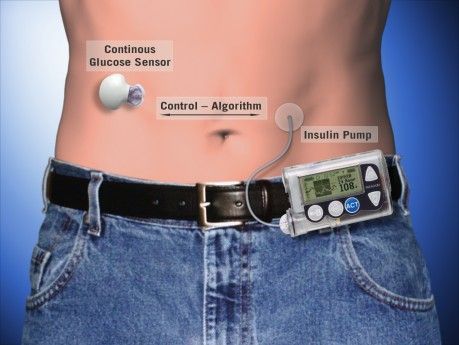Medical expert of the article
New publications
Artificial pancreas will soon be available to diabetics
Last reviewed: 01.07.2025

All iLive content is medically reviewed or fact checked to ensure as much factual accuracy as possible.
We have strict sourcing guidelines and only link to reputable media sites, academic research institutions and, whenever possible, medically peer reviewed studies. Note that the numbers in parentheses ([1], [2], etc.) are clickable links to these studies.
If you feel that any of our content is inaccurate, out-of-date, or otherwise questionable, please select it and press Ctrl + Enter.
Diabetes mellitus is a chronic disease that results from high blood sugar levels or insufficient production of insulin, a hormone that allows the body's cells to absorb glucose.

The main symptom of the disease is the removal of sugar from the body along with urine. The cause of this disease is a violation of the secretion of the pancreas, which cannot produce the required amount of the hormone insulin or insulin of the required quality.
Type 1 diabetes occurs due to dysfunction of the beta cells of the islets of Langerhans in the pancreas, which produce insulin.
Type 2 diabetes is caused by defective insulin secretion due to insulin resistance.
Scientists Minjian Huan, Jiazhu Li, Jinyu Song and Hongjiyan Guo have proposed new mathematical calculations of insulin doses for injections for diabetes mellitus types 1 and 2. They are insulin pumps that deliver insulin to the body at the required frequency.
This medical device measures blood glucose levels and maintains them within normal limits. It is very important to ensure that the patient has sufficient insulin levels in the blood, otherwise there is a risk of hypoglycemia, which develops due to excess insulin and its excessive absorption of glucose. In addition, this approach requires diabetics to adhere to a strict dietary regimen, as well as insulin administration.
The system that monitors glucose and automatically injects it with the necessary dose of insulin, which is calculated by a computer algorithm, is called an artificial pancreas. Previous tests conducted by scientists show the effectiveness of this system.
Thanks to an artificial pancreas, people suffering from diabetes can significantly improve their quality of life by eliminating the need to constantly measure their blood sugar levels.
Despite successful research results, the development of an artificial pancreas is hampered by the lack of reliable predictive models and methods for accurate glucose monitoring, as well as an ineffective algorithm for managing insulin supply.
Further work by scientists will be aimed at refining the system, which will be able to provide greater sensitivity to physiological changes in the body.

